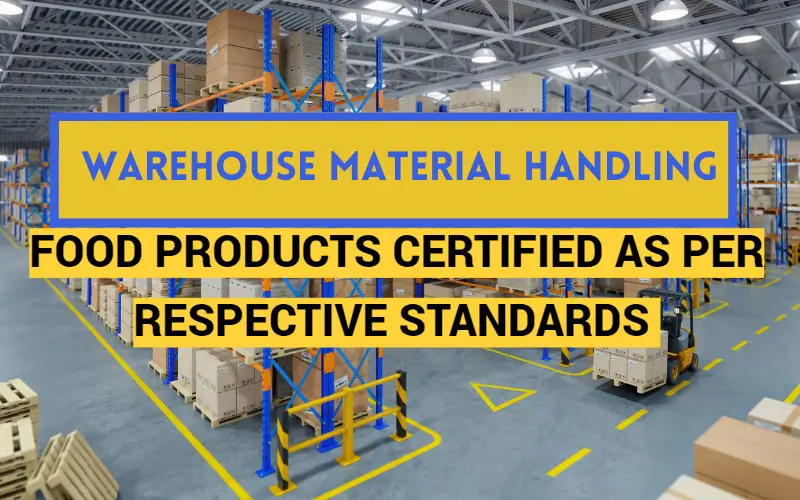
ORGANIL SERVICES With Anil Mathew Varghese (DEDICATED ORGANIC FOOD CONSULTANCY SERVICE PROVIDED WITH TIMELY AND ROUTINED PROCEDURES) WHATSAPP TO +91 8606551335
Maintaining integrity in food storage facilities when handling different products certified according to their respective food standards requires careful adherence to proper handling, storage, and segregation practices. Here are some key considerations:
1. Clear identification and labelling: Properly label and identify different certified products to ensure clear segregation. Each product should be clearly marked with its respective certification logo, code, or label, making it easy to differentiate between different certified products.
2. Physical segregation: Physically separate certified products to prevent cross-contamination. This can be achieved through dedicated storage areas, separate shelves or racks, or using physical barriers to ensure that products do not mix or come into contact with one another.
3. Good Manufacturing Practices (GMP): Adhere to strict GMP guidelines to maintain cleanliness and prevent cross-contamination. This includes proper cleaning and sanitization of storage areas, equipment, and utensils between handling different certified products.
4. Training and awareness: Train personnel working in food storage facilities about the importance of maintaining integrity and segregation of certified products. Ensure that they are aware of the specific requirements of each certification standard and understand the significance of avoiding cross-contamination.
5. Documentation and record-keeping: Maintain accurate records and documentation of incoming and outgoing certified products. This includes recording batch or lot numbers, expiration dates, and any specific handling requirements for each product. Good record-keeping helps track the movement of products and provides transparency and accountability.
6. Supplier verification: Verify the certification status of suppliers and their products. Regularly update and maintain a list of approved suppliers who meet the specific certification standards for the products being stored. Regular communication and verification with suppliers can help ensure the integrity of the products being handled.
7. Regular audits and inspections: Conduct regular internal audits and inspections to verify compliance with segregation and handling practices. These audits can help identify any potential issues or gaps in maintaining the integrity of certified products and enable timely corrective actions.
By following these practices, food storage facilities can maintain the integrity of different certified products and ensure that they meet the respective food standards. It is important to stay up to date with the specific requirements of each certification standard and comply with any additional guidelines or regulations in place for handling certified products.
Stay updated with the latest farming tips and agriculture industry news from Africa by subscribing to our newsletter. Don’t miss out on valuable insights and updates. Follow us on Twitter, LinkedIn, and Facebook to join our farming community and stay connected with us.



















